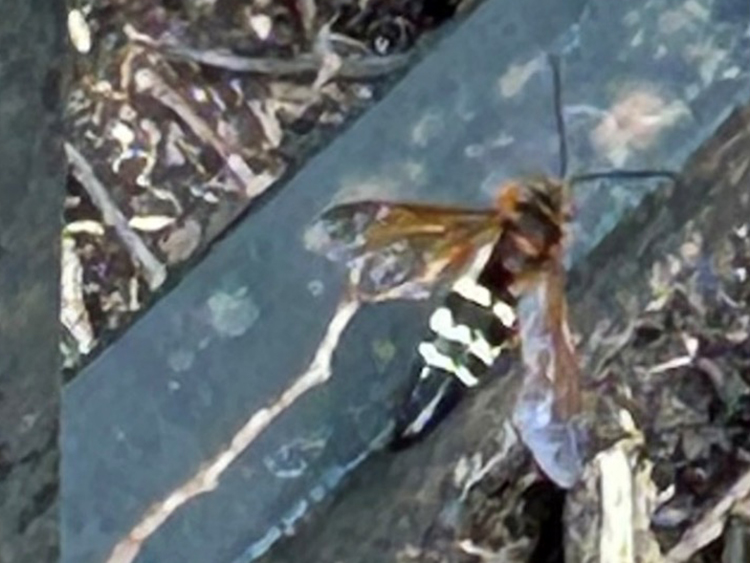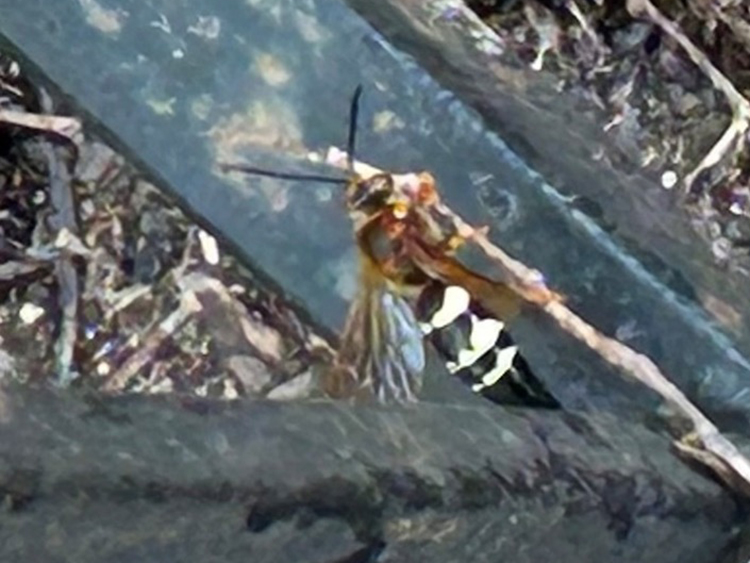Agriculture and Natural Resources Blog

Matthew Orwat
County Extension Agent – AG/NR
Email: matthew.orwat@ag.tamu.edu
Don’t Kill Cicada Killers
July 16, 2025
Several years ago, many television viewers were heavily disturbed by the appearance of the invasive Japanese hornet in the western corner of the United States, particularly Washington State. At this time, they have not reached Texas and have not been seen in the southeastern USA, but many false sightings are reported annually thanks to the presence of a native look-alike, the Cicada Killer wasp.
Cicada killers tend to nest under trees and in other areas with bare soil. The good news is that male cicada killers, while they may hover and dive bomb you, cannot sting. Females tend to only sting when disturbed and handled. They are not harmful to one’s garden and serve as pollinators when feeding on nectar.
Cicada killers’ life cycle consists of complete metamorphosis. Females emerge from the ground in June, hunt for cicada food for their eggs and die by September. In late summer, the cicada killer larva, which has been feeding underground on their cicada victims, begins to spin a silken pupa and remains in the pupa state until next June when emergence occurs again.
Cicada killers have an interesting diet. The females harvest living but paralyzed cicadas for their larva, providing one for each egg they lay so that when the egg hatches, the larva can dine on the cicada from the interior. Adult males and females live on nectar and tree sap. They live in individual nests, finger sized holes in the ground, but several hundred nests can be in the same general area.
"Though their size and behavior may appear alarming, cicada killer wasps play a vital role in regulating cicada populations and maintaining ecological equilibrium. Their life cycle, specialized predation, and non-aggressive nature exemplify the complexity and balance found in natural systems – reminding us that not all intimidating insects pose harm to humans, and many are essential contributors to biodiversity and soil health."
~ Sarah Perry, Texas A&M AgriLife Dallas County Intern
So, don’t kill cicada killer wasps. They exist as part of nature’s balance, provide minimal disturbance to humans and offer moderate environmental benefits.


Cicada Killer photographed in southern Dallas County. Image Credit Matthew Orwat.
QUICK LINKS
LOCATIONS
EMPLOYEES
-
You must be on the network to see these links.

